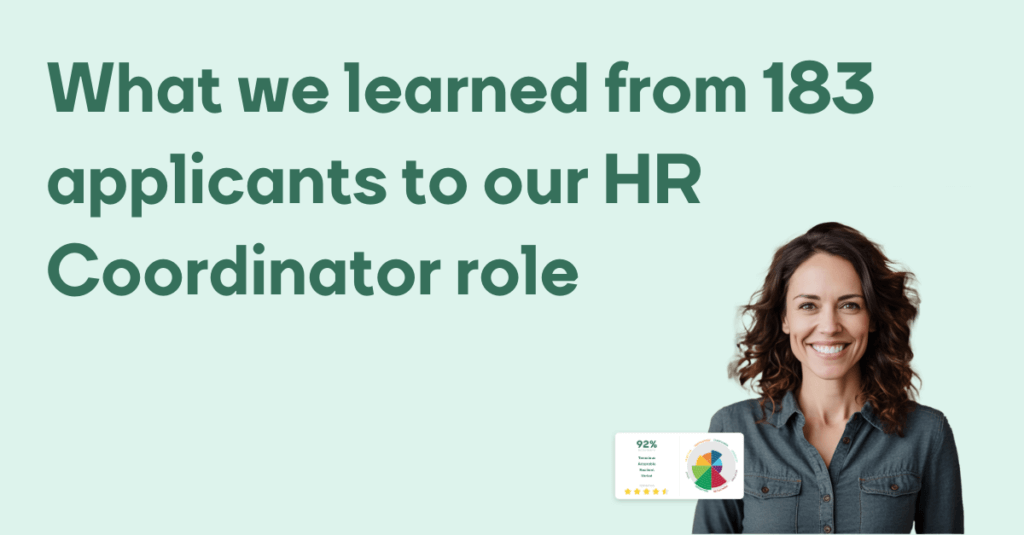Recruiting for people-first roles like HR Coordination offers more than just the chance to fill a vacancy—it provides a lens into the traits and capabilities that define today’s HR talent pool. During a recent hiring round for an HR Coordinator, we assessed 183 applicants using both cognitive and personality tools. The insights we uncovered shed valuable light on what strong candidates actually look like in 2025.
Below, we share the highlights from our findings—and what they reveal about the evolving shape of HR talent.

👥 Candidate snapshot: Who applied?
- Total Applicants: 183
- Women: 153 (84%)
- Men: 30 (16%)
This gender breakdown is typical for HR roles, particularly coordination-level positions, where early-career entry points and people-centric functions tend to attract more female applicants. But the real value came from assessment data.
🧠 Verbal reasoning: Cognitive ability at a glance
We used a standardised verbal reasoning test (Sten scale 1–10) to measure applicants’ verbal ability. Here’s what we observed:
- Most candidates clustered around Sten 6–7, indicating above-average verbal reasoning.
- The distribution skewed slightly higher than average, suggesting strong written and spoken communication skills.
- Very few applicants scored at either extreme, pointing to a consistently capable talent pool.
What this tells us: These results align well with the demands of an HR Coordinator role—clear communication, structured writing, and day-to-day people interactions all require high verbal fluency. This group showed strong potential in that domain.
🧠 + 🌟 Combined assessment: The full picture
Among candidates who completed both assessments, we observed a promising pattern:
Strong verbal skills combined with high scores on traits like compassion, ethics, and adaptability.
This combination signals profiles that are:
- Articulate and people-focused
- Comfortable navigating complexity and ambiguity
- Guided by principles, not just procedures
In other words: a strong match for roles in people operations.
Final thoughts: Hiring as market research
The recruitment process shouldn’t just end when you find a hire. Done right, it becomes an opportunity to gather market intelligence, test assumptions, and improve future hiring decisions.
From this campaign, we learned:
- HR applicants show consistently strong people skills—both cognitively and behaviourally.
- Psychometric data adds valuable depth to shortlisting decisions.
- Trait and ability assessments can validate what CVs and interviews often miss.
If you’re hiring for people-first roles, consider building insight-driven assessments into your process. The results won’t just help you hire better—they’ll help you understand your market better, too.
Curious about applying this in your hiring?
We’re happy to share more on how we use assessments to support better hiring outcomes. Get in touch to explore how these tools can work in your organisation.



